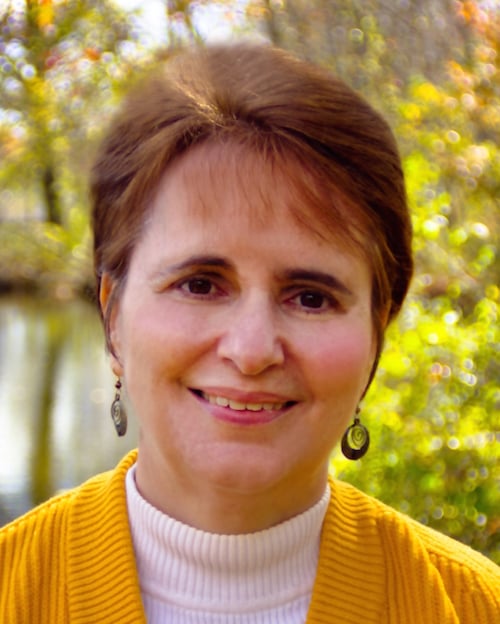Woman’s intuition is sometimes scoffed at, but as women, we know that we possess something akin to radar when it comes to sensing the moods and needs of others. In chapter 3 of The Authentic Catholic Woman, Genevieve Kineke draws the connection between the sacrament of reconciliation and the unique ability of women to sense hurts and needs, and offer healing. Knowing how to build bridges that heal rifts in relationships brings others closer to our Lord, making us as women agents of reconciliation (pg. 32, The Authentic Catholic Woman).
![jesus-to-the-thief-on-the-cross[1]](https://static.hsstatic.net/BlogImporterAssetsUI/ex/missing-image.png) Jesus as the supreme agent of reconciliation died on the cross to take on the sins of the world. Even as He was dying, He forgave those who crucified Him (“Father, forgive them for they know not what they do.”) and offered salvation to the penitent thief through forgiveness. The prayer which He Himself taught the apostles says, “And forgive us our trespasses as we forgive those who trespass against us . . .” We are required to be such agents of reconciliation in order to receive the same from our Heavenly Father. In everything we do, we are to imitate Christ, and what better way than to offer healing through our abilities as peacemakers.
Jesus as the supreme agent of reconciliation died on the cross to take on the sins of the world. Even as He was dying, He forgave those who crucified Him (“Father, forgive them for they know not what they do.”) and offered salvation to the penitent thief through forgiveness. The prayer which He Himself taught the apostles says, “And forgive us our trespasses as we forgive those who trespass against us . . .” We are required to be such agents of reconciliation in order to receive the same from our Heavenly Father. In everything we do, we are to imitate Christ, and what better way than to offer healing through our abilities as peacemakers.
We all know that family life is full of conflict, both large and small (pg. 32,The Authentic Catholic Woman). Nothing hurts more than a falling out between a husband and wife, or a parent and child. Since we are the most vulnerable with regards to members of our family, we are open to being hurt emotionally and sometimes physically. The rifts in the family (the domestic Church) are a small reminder of the disunity in the universal Church, and the pain we feel is the pain Christ knew over these conflicts. Kineke reminds us to unite our own sufferings with Christ as the work of restoration is hard, involving much suffering (pg 33, Ibid).
In the end it comes down to love versus fear, and only love can offer reconciliation and renewal. Fears of getting involved or getting hurt serve only to block reconciliation from happening. We have to step out boldly to affect reconciliation.
I have to admire my two cousins, sons of my father’s brother. For some reason which we will never know (since my uncle has since passed on), my uncle became very angry with our family after my father passed away. At the time it seemed like a small slight with regards to funeral preparations, but it blew up into a feud. It was irrational (and perhaps based on the fact that we did not reach out enough when he lost his wife to cancer years ago), but because it was irrational, I immediately let it go. There was no point in holding on to it. I was sad that he no longer wanted anything to do with us, but reaching out was fruitless.
Or was it? When my aunt (his sister) passed away, we all went to the wake and funeral. During the wake, we spoke at length with my uncle’s oldest son who is truly an extraordinary man. He decided not to involve himself in his father’s feud with us and was very gracious to us (even through my uncle tried to perpetuate the feud even during the wake!). At the dinner after the funeral, I could see how the younger son was torn between loyalty to his father and the absurdity of the feud.
Unfortunately the feud was never reconciled as my uncle was not interested in resolving it or even discussing it. But his sons continued to reach out to us and we to them with Christmas cards and lovely sympathy cards from each of them after my mother’s passing. While it was not possible to reconcile with my uncle, the feud died with him because his sons were willing to take the chance and reach out. I am eternally grateful to the both of them, and their mother would have been proud. Perhaps she, in her spot in heaven, helped to act as the agent of reconciliation between the two families. We’ll find out when we all meet again.
Remembering my brave nephews reminds me that it is always worth it to stick your neck out and try to affect reconciliation. This is what Jesus’ mission was all about and it needs to be my personal mission as well.
Copyright 2011 Susan Bailey
About the Author

Susan Bailey
Susan Bailey is the author of River of Grace: Creative Passages Through Difficult Times (Ave Maria Press), and Louisa May Alcott: Illuminated by The Message (ACTA Publications), part of their Literary Portals to Prayer series. Along with her blogs Be as One and Louisa May Alcott is My Passion, Susan writes for the Diocese of Worcester newspaper, The Catholic Free Press.


.png?width=1806&height=731&name=CatholicMom_hcfm_logo1_pos_871c_2728c%20(002).png)
Comments